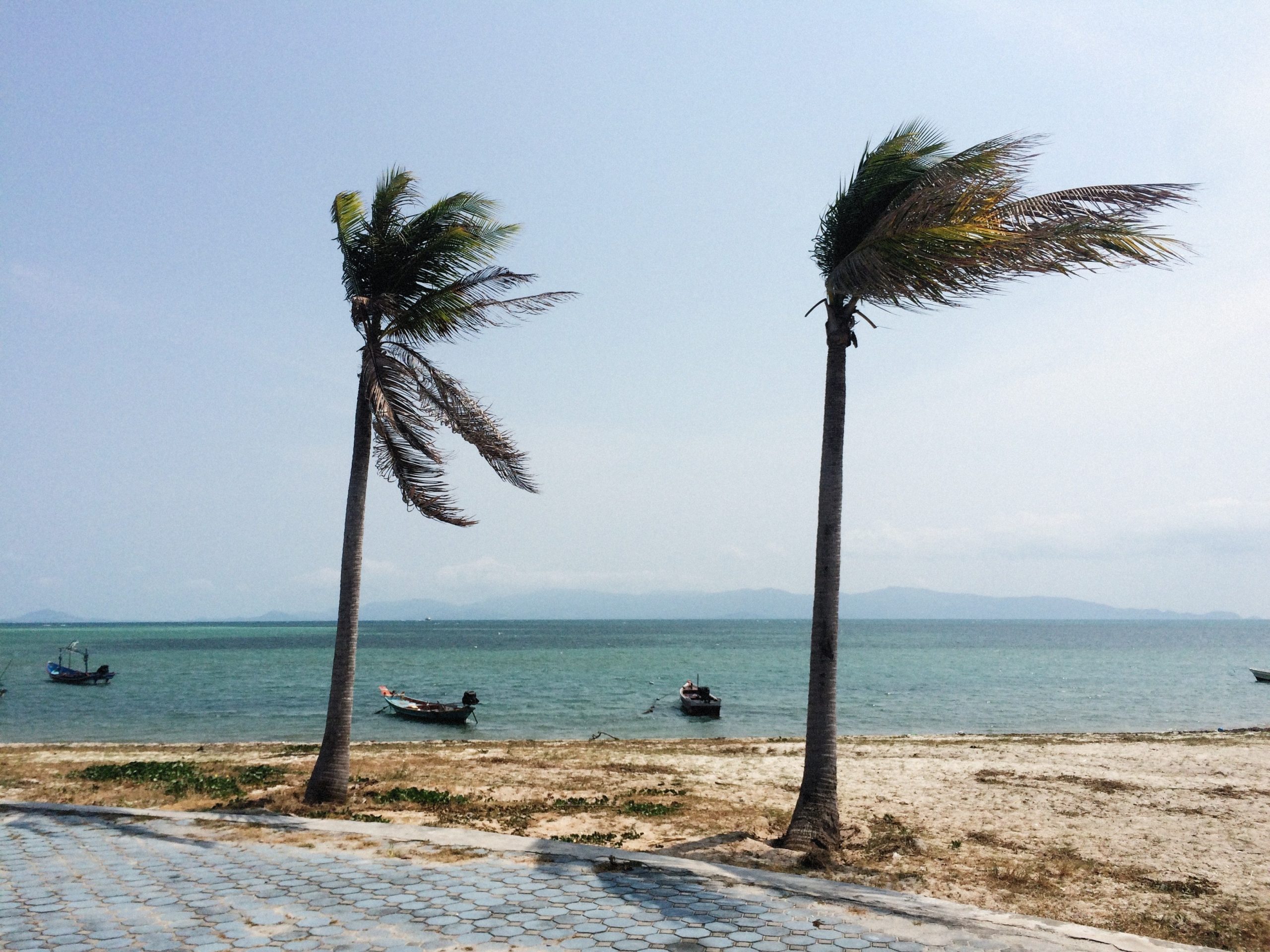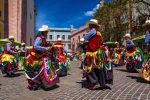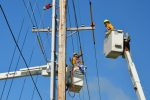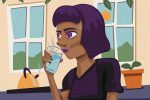The roads leading to 84-year-old Adelaida Matos Velez’s house in Cabo Rojo are narrow. Lined with trees on one side and a modest neighborhood on the other, the streets force cars driving on the road to slow down and honk to let other drivers know they are coming. The island’s hilly landscapes result in steep hills with low visibility at the top. The roads are also occasionally flooded, covered in vegetation falling from overhanging branches and pockmarked with a spattering of potholes.
It just so happens that an enormous mango tree grows just across the street from Matos Velez’s house that yields ripe mangos in vibrant shades of yellow and red every year. Collapsible plastic chairs sit underneath the plentiful shade, offering a gentle respite for any company that should like to stop by. The chairs take up a little bit of the road, as there is no sidewalk to speak of, but the residents of the neighborhood know that Matos Velez receives friends and loved ones under the mango tree, and offer a courteous breath of space as they pass through.
Matos Velez herself is an extremely short woman. Standing no higher than 5 feet tall, she has an altogether modest and unassuming appearance while embodying all the qualities of a beloved grandmother. Her gray hair has been cropped short. She wears a blue smock dress. She punctuates the ends of her sentences with a wave of her brown, arthritic hands. She would normally offer her visitor a nice hot cup of coffee, but her house has been without electricity for over two weeks.
Hurricane Fiona reached the island of Puerto Rico in September. Matos Velez has lost power for a harrowing 25 days.
Matos Velez is one of the thousands of Puerto Ricans still waiting for power to return to their houses. Despite having no power in her house, she made it out of the most recent hurricane relatively unscathed. Matos Velez says she counts her blessings because she has running water and relatively minimal damage to her house. Others have not been able to say the same.
Over 837,000 Puerto Ricans have found themselves without the essential service of water. Without water, people are unable to shower, do laundry, use their bathrooms, keep their homes clean or drink clean water from the tap. Still more are straddling both the loss of power and the loss of electricity.
As a result of the hurricane’s devastating effects, Puerto Ricans such as Matos Velez are unable to carry on with their daily routines as they did before. She laments, “I can’t leave. I don’t leave here.”
The elderly woman describes how she wakes up every day to wash, cook and clean around her house. Her gas stove allows her to prepare hot foods with no trouble at all, but she has to turn on the generator for a few hours to keep food from going bad in the fridge. Despite her efforts, though, Matos Velez still finds herself having to throw out rotten food.
Generators can cost upwards of $400. Generators and solar panels are too often inaccessible due to installation and maintenance costs. But even having a generator does not solve the problem so much as offers a temporary fix.
Matos Velez counts herself lucky. The little Yamaha generator in Matos Velez’s house allows her to charge her phone, turn on the television and keep a fan on for a while.
But when the sun sets for the night, Matos Velez’s house sinks into complete darkness until morning comes. Sleeping in pitch black, without so much as a ceiling fan in Puerto Rico’s humid climate makes for one of the more uncomfortable times of the day.
“I feel really bad,” she says. “It’s not easy living without power.”
This is not the first time Matos Velez has lived without power. The memory of Hurricane Maria is still fresh, stirred by the winds of the most recent natural disaster. It doesn’t help that Hurricane Maria also hit Puerto Rico in the month of September just five years ago. The name Maria alone caused Matos Velez to exclaim, “Ay muchacha!” She leaned forward, her eyes wide. “The wind almost knocked me over with the dogs.”
Then she leaned back and reflected a moment. “Maria had a lot of wind. Fiona had a lot of water.”
Indeed, flooding was a tremendous concern for Puerto Rico after Hurricane Fiona. Puerto Ricans were essentially confined to their homes in the hours after the hurricane passed due to roads being completely underwater, and some people lost their homes where the flooding was more severe.
Experiences from Hurricane Maria helped Matos Velez prepare before the storm struck. Matos Velez remembered how drinking water became scarce, so she stocked up on bottled water from the store. She also set up buckets to collect rainwater just in case she should need a backup plan.
Matos Velez notes that there has luckily been some community support, mostly in the form of water distribution. The volunteer effort from the community alleviates some of the concerns about access to clean drinking water. Many residents go to the water distribution sites to wait in line to collect water and sometimes ice for their homes. Unfortunately, traveling and waiting in line are obstacles that make it more difficult for the elderly Matos Velez to take advantage of the aid effort. So Matos Velez, shrugging regrettably, admits that she mostly relies on her own water reserves.
Puerto Ricans suffering from damages lasting more than five days as a result of Hurricane Fiona are also qualified to request financial assistance from FEMA, but that too has been delayed for many or outright denied for others.
“There is no remedy for bad weather,” Matos Velez says with a sigh. She explains that one cannot truly prepare for a natural disaster; one can only stock up on the most basic necessities that will become absolutely vital.
All that is left to do now, Matos Velez says, is deal with the mess little by little. “There’s nothing else we can do.”

















